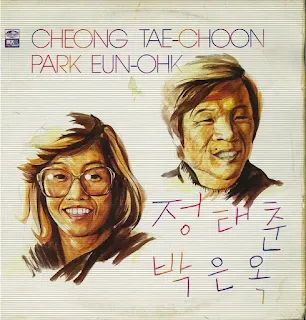Singer Jeong Tae-chun Living Legend of Korean Pop Music History
Jeong Tae-chun: A Living Legend of Korean Popular Music
Jeong Tae-chun is a musician who occupies a unique position in Korean popular music. His musical journey transcends the boundaries of conventional pop songs, embedding profound artistic and social messages. His music reflects the times, embodying significant changes in Korean society and culture. This blog explores Jeong Tae-chun's musical journey, his iconic songs, social messages, and the impact he has had on Korean popular music history.
1. Musical Journey: Capturing the Voice of the People
Early Career and Debut
Born in 1954 in Pyeongchang, Gangwon Province, Jeong Tae-chun made his debut in 1978 with the album "The Poet’s Village." His combination of poetic lyrics and the lyrical nature of folk music left a deep impression on both the public and critics. "The Poet’s Village" went beyond typical love songs, delving into human emotions and the beauty of nature with profound lyricism.
Musical Evolution and Experimentation
In the 1980s, Jeong began to embed social and political messages into his music, moving beyond the boundaries of folk music. His 1984 album "On the Bukhan River" critiqued the political landscape of the time and faced censorship. Subsequently, he explored new musical dimensions by blending traditional Korean music with contemporary styles, opening new horizons for Korean music.
Collaboration with Park Eun-ok
A significant part of Jeong Tae-chun’s musical journey is his partnership with his wife, singer Park Eun-ok. Park, known for her warm and lyrical voice, gained acclaim through songs like "To My Beloved." Together, they have shared their lives and music, performing and producing albums that reflect their harmonious relationship. Their duets hold a special place in the history of Korean popular music.
Performances and Independent Music
Since the 1990s, Jeong has focused on working as an independent musician, prioritizing his musical philosophy over commercial success. By communicating directly with his audience through concerts and album production, he maintained an unwavering commitment to the authenticity of his music.
2. Iconic Songs: Voices of the Times
"The Poet’s Village"
One of Jeong’s signature songs, "The Poet’s Village," stands out for its lyrical melody and poetic lyrics. As his debut piece, it remains a masterpiece of Korean folk music, loved by many.
"On the Bukhan River"
This song marked a turning point in Jeong’s music, moving beyond natural depictions to convey socio-political messages. It resonates deeply with listeners, reflecting the contradictions and struggles of Korean society.
"Song of the Han River"
"Song of the Han River" amplifies Jeong’s social message, representing those marginalized by modernization and development. It calls for reflection on the shadows cast by Korea’s rapid economic growth.
3. Social Messages: Resistance and Hope Through Music
Censorship and Struggle
The 1980s and 1990s were periods of strong censorship and authoritarian rule in Korea. Jeong Tae-chun raised his voice against oppression through his music, enduring legal battles and censorship to protect freedom of expression.
Environmental and Social Issues
Jeong also addressed environmental concerns and advocated for the underprivileged through his music. Songs like "Song of the Han River" reflect his philosophical approach, which continues to resonate with audiences today.
Unity and Peace
A recurring theme in Jeong’s music is the aspiration for unity and peace on the Korean Peninsula. His music captures the pain of a divided Korea while advocating for harmony and reconciliation.
4. Impact on Korean Popular Music History
Expanding Folk Music’s Horizons
Jeong Tae-chun broadened the scope of folk music by infusing it with social messages. He demonstrated that music could be a powerful tool for social change, going beyond mere entertainment.
Pioneer of Independent Music
By carving out a path as an independent musician in a highly commercialized music industry, Jeong inspired many younger artists. He highlighted the significance of independent music in shaping authentic artistry.
Cultural Icon
More than just a musician, Jeong is a cultural icon representing societal and cultural transformations in Korea. His music transcends generations, resonating with people across time.
Conclusion: The Enduring Legacy of Jeong Tae-chun and Park Eun-ok
Jeong Tae-chun is not merely a musician but a voice of his era. His music continues to inspire many, standing as a vital part of Korean popular music history. Together with his wife, Park Eun-ok, their musical journey has carved out a unique space, showcasing their harmonious world of music that will remain timeless.




댓글
댓글 쓰기